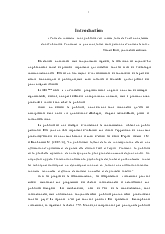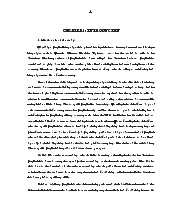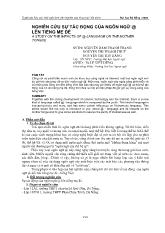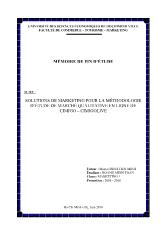REFUSALS TO INVITATIONS: The Use of Vietnamese Learners of English and the Use of Native Speakers of English – A Comparison
- Người chia sẻ : vtlong
- Số trang : 44 trang
- Lượt xem : 13
- Lượt tải : 500
Các file đính kèm theo tài liệu này
 Complete%20content.doc
Complete%20content.doc
- Tất cả luận văn được sưu tầm từ nhiều nguồn, chúng tôi không chịu trách nhiệm bản quyền nếu bạn sử dụng vào mục đích thương mại
Bạn đang xem trước 20 trang tài liệu REFUSALS TO INVITATIONS: The Use of Vietnamese Learners of English and the Use of Native Speakers of English – A Comparison, để xem tài liệu hoàn chỉnh bạn click vào nút DOWNLOAD LUẬN VĂN ở trên
To become effective communicators in today’s connected world, it is necessary for language learners to gain true communicative competence. Communicative competence, according to Hymes (1967), includes not only knowledge of linguistic forms but also knowledge of when, how and for whom it is appropriate to use these forms. Likewise, Ellis (1994:696) states that communicative competence “entails both linguistic competence and pragmatic competence”.
Pragmatic competence is defined as ‘the ability to use language effectively in order to achieve a specific purpose and to understand language in context’ (Thomas 1983:94). She also distinguishes between pragmalinguistic and sociopragmatic competence. Pragmalinguistic competence refers to the appropriate language to accomplish a speech act, whereas sociopragmatic competence refers to the appropriateness of a speech act in a particular context.
Increasing attention has been paid to pragmatic competence due to the fact that many learners may have good knowledge of grammar and a wide range of vocabulary but they may still fail in real interaction with native speakers. Moreover, in accordance with Thomas (1983), native speakers often forgive the phonological, syntactic and lexical errors made by L2 speakers but usually interpret pragmatic errors negatively as rudeness, impoliteness or unfriendliness.
Over the past few decades, language teaching in the world and in Vietnam has witnessed a shift from the focus on the development of learners’ linguistic competence to the development of learners’ communicative competence. To facilitate this change, there is a need for more studies on learners’ pragmatic competence, including studies on interlanguage pragmatics. This study is carried out in an attempt to understand more about the interlanguage pragmatics of Vietnamese learners of English.




